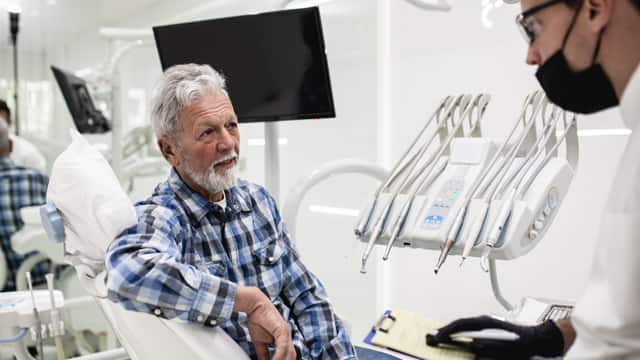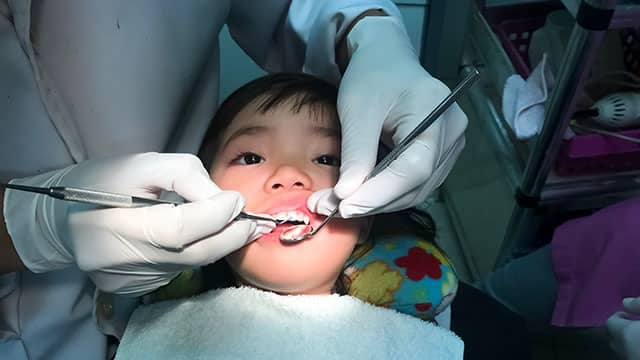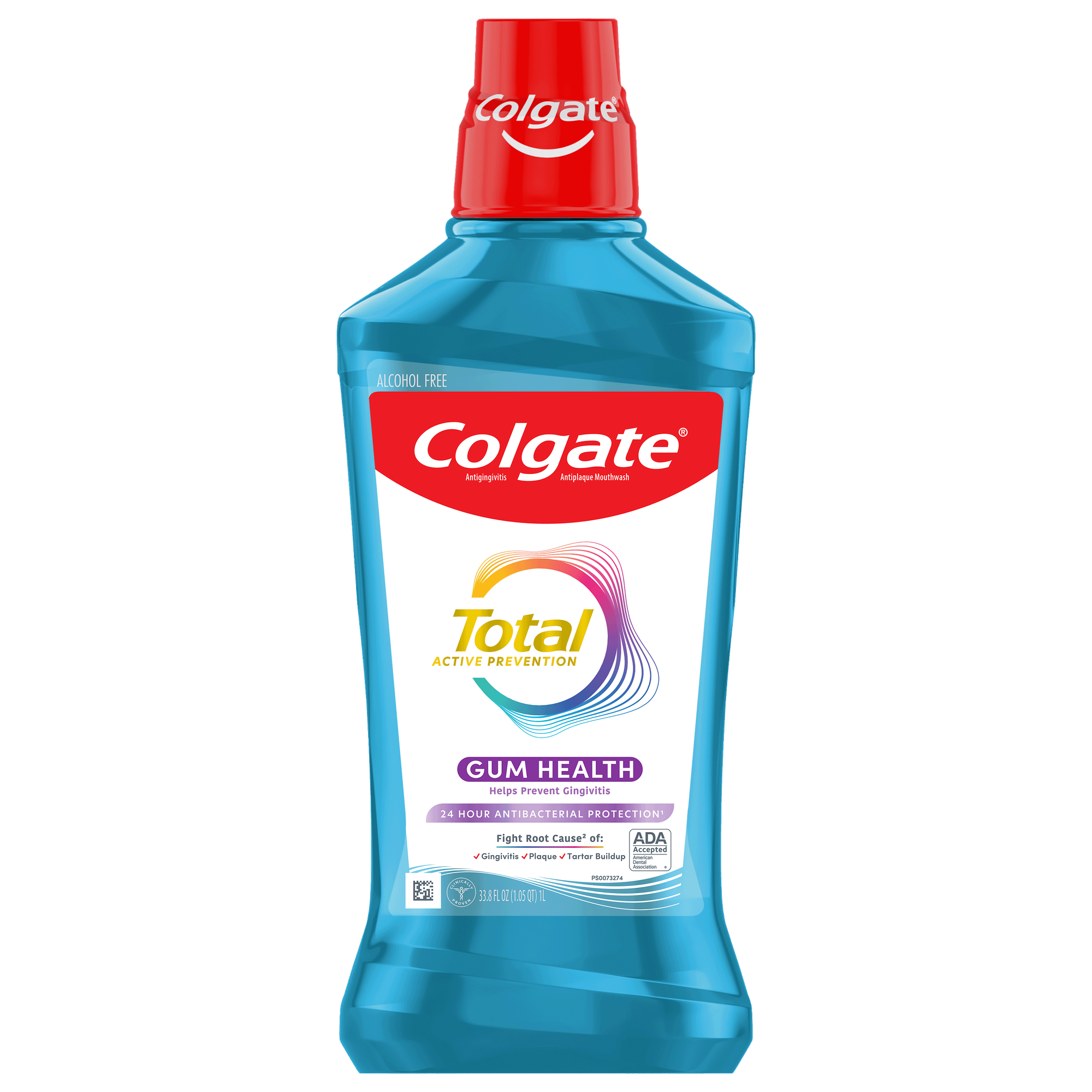What Is Tongue Cancer?
Tongue cancer is a type of oral cancer that most often occurs in thin, flat squamous cells on the tongue’s surface. But not all cells are the same; the location of cancer in your mouth will likely determine the treatment plan. There are two parts of the tongue: the front two-thirds, which is called the oral tongue, and is what you see when you stick out your tongue. The back third, or base of the tongue, which is near your throat, or pharynx. Cancer that develops here is considered oropharyngeal cancer, or throat cancer, and can potentially be more serious as it may have spread into the lymph nodes in the neck.
Tongue Cancer Symptoms
Learning how to detect tongue cancer can be a part of your oral health maintenance. If you think you might be experiencing symptoms, set up an appointment with your dental professional immediately.
- A lump on the tongue: It may look like an ulcer, appear grayish-pink to red, and easily bleed if bitten or touched.
- A lump or pain in the neck: You may experience pain or difficulty when swallowing, a sore throat that does not go away, trouble moving the tongue or jaw, or a feeling of a lump in your neck or throat.
- Red, white, or dark patches on the tongue: These may bleed and not go away.
- Mouth numbness
- Voice changes
- Ear pain
Who Is Affected By Tongue Cancer?
While tongue cancer can affect anyone, certain risk factors can potentially make people more susceptible. Heavy alcohol consumption and tobacco use can put you at risk, and it’s shown to appear more often in men over age 40. Further, new research has found that cancers at the tongue base can be associated with human papillomavirus (HPV), which affects prognosis and treatment.
Detecting Tongue Cancer
The key to treating any form of cancer is early detection. If you’re experiencing any of these symptoms, especially if they’ve persisted over a few weeks, schedule an appointment with your dental care provider, who will perform an examination. They will likely perform or order a biopsy, where a small amount of tissue is taken from the part of the tongue where cancer is suspected. They will send this tissue to be examined by a pathologist, who will help make the diagnosis.
Your doctor or dentist may also recommend other detection methods, such as an X-ray, MRI, or CT scan, to determine the diagnosis. A CT scan is used to identify the tumor's size, shape, and location and whether the cancer is growing into nearby tissues, including the lymph nodes in the neck or lungs. An MRI is also used to detect whether the cancer has spread and is especially helpful for tumor staging and to determine whether the cancer has spread to other parts of the body. Your doctor may also recommend an endoscopy, which is used to get a closer look down your throat and into your lungs. If your doctor can't determine the cause of your symptoms, he may refer you to an ear, nose, and throat specialist.
Treatment Methods
The key to treating any form of cancer is finding it early before it spreads. While surgery is the most common treatment for cancers for the tongue, the tumor or mass size will determine the treatment approach and whether or not it has traveled to the neck’s lymph nodes. If your cancer has spread or is more advanced, your doctor may recommend radiation, chemotherapy, or both in addition to surgery.
Any form of cancer deserves the best medical attention to ensure your course of treatment is ideal for you, so if you think you’re experiencing any symptoms, set up an appointment with your oral care professional. Nevertheless, the best way to avoid these tongue cancer symptoms is to live the healthiest life possible. That includes maintaining a great oral health routine, avoiding tobacco use, and being aware of any symptoms.
This article is intended to promote understanding of and knowledge about general oral health topics. It is not intended to be a substitute for professional advice, diagnosis or treatment. Always seek the advice of your dentist or other qualified healthcare provider with any questions you may have regarding a medical condition or treatment.
ORAL HEALTH QUIZ
What's behind your smile?
Take our Oral Health assessment to get the most from your oral care routine
ORAL HEALTH QUIZ
What's behind your smile?
Take our Oral Health assessment to get the most from your oral care routine















